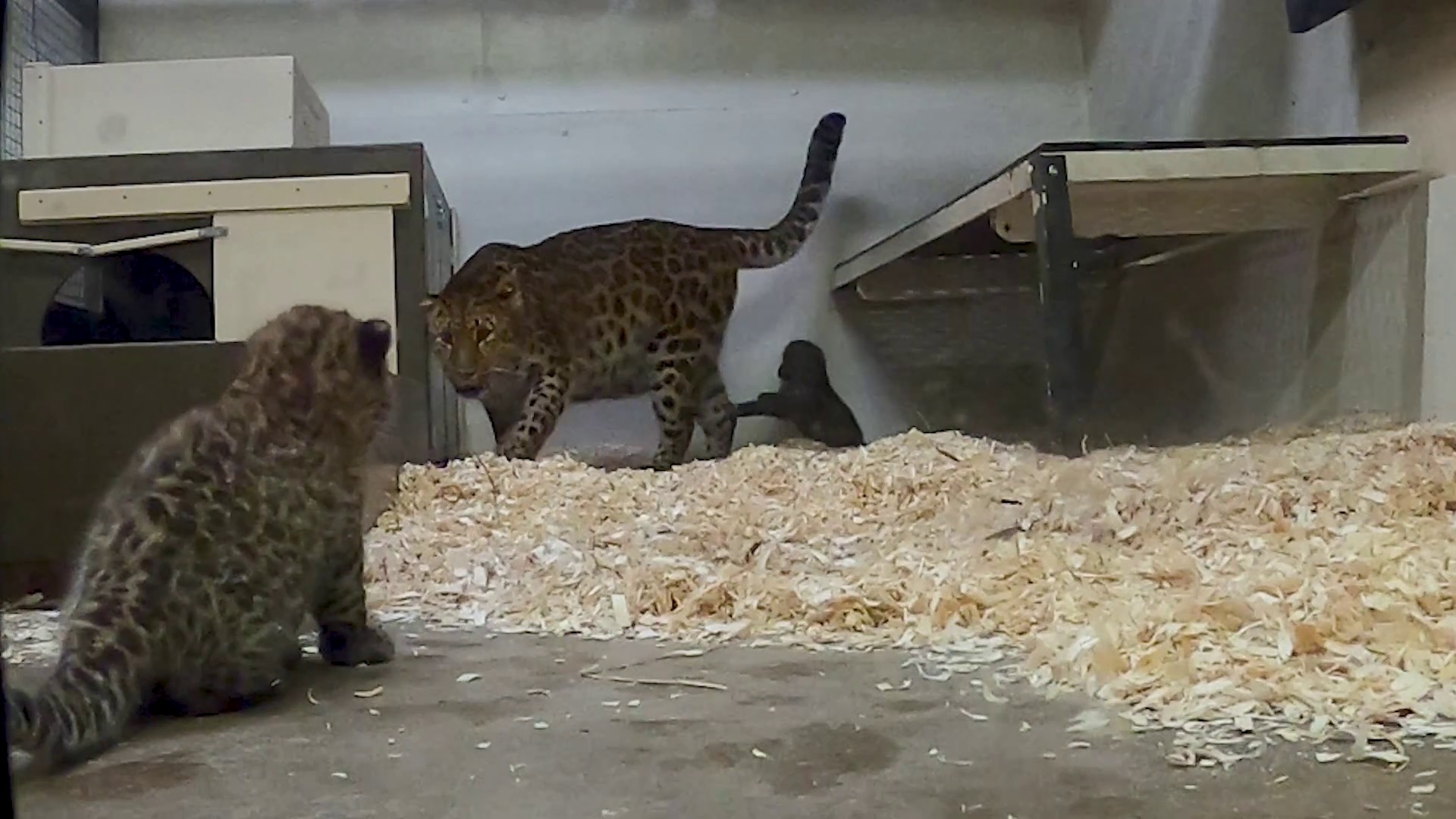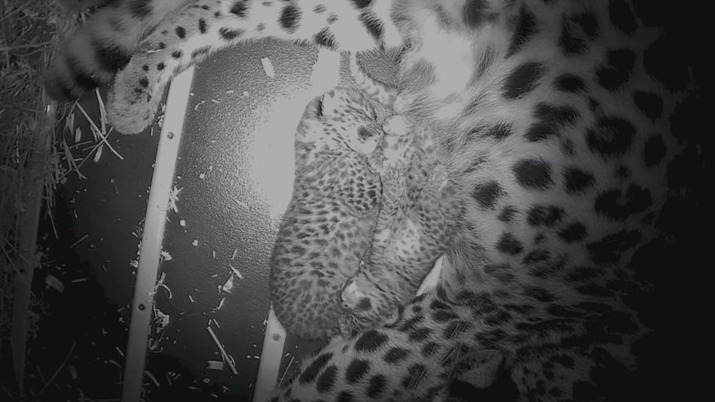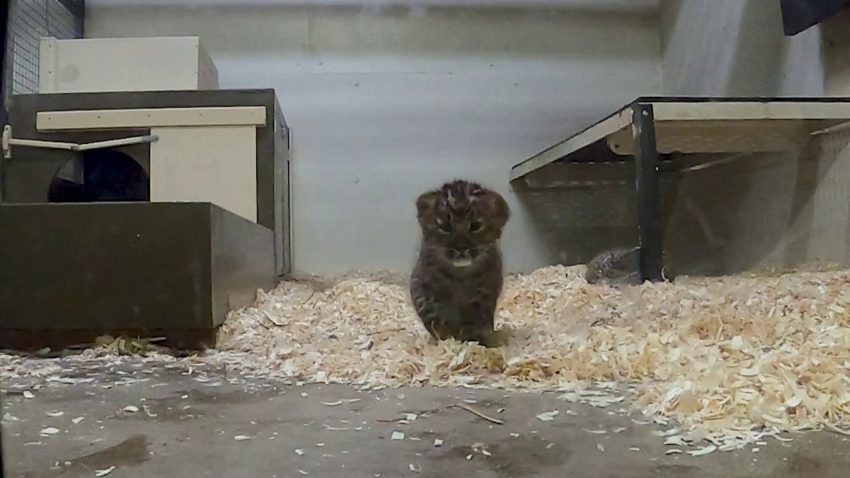
CHICAGO – Two Amur leopard cubs born at Brookfield Zoo Chicago are thriving at two months old, marking a major step for one of the world’s most endangered big cats.
What we know:
The cubs, born July 14, are the first litter for 6-year-old Mina, who arrived at Brookfield Zoo in 2021. Their father, Sasha, was born at the zoo in 2020. With fewer than 100 Amur leopards left in the wild, their birth is considered a significant milestone in global conservation efforts.

World’s rarest big cat welcomes cubs at Brookfield Zoo | ChicagoNOW
World’s rarest big cat, the Amur Leopard, gives birth to two cubs at Brookfield Zoo. The zoo is celebrating the birth of two Amur leopard cubs, born on July 14, 2025, to 8-year-old Mina. With fewer than 100 Amur leopards left in the wild, the births mark a major milestone for one of the world’s most endangered big cat species.
At their recent wellness exam, veterinarians weighed the cubs at 6 and 6.4 pounds and gave them their first vaccinations.
“These two, just like my young son, were hesitant to see the doctor. They are gorgeous and appear healthy,” said Dr. Copper Aitken-Palmer, senior veterinarian at the zoo. “This eight-week exam was the first step towards getting them outside to meet the world, hopefully in time to see our first snowfall!”
For now, the cubs are spending their days behind the scenes, following their mom around and learning to pounce!
What’s next:
The zoo plans to keep monitoring Mina and her cubs closely before introducing them to the public. If all goes well, visitors may get to see the cubs this winter, when Chicago’s cold weather will feel much like their native Russian habitat.
The backstory:
Amur leopards are native to the forests of eastern Russia, where they face threats from poaching, habitat loss and forest fires. Unlike African leopards, they are built for cold climates, with thick coats and long tails to help them survive frigid winters.
Only about 70 Amur leopards are in accredited zoos worldwide.
“This birth is a hopeful step for the future of Amur leopards,” Mark Wanner, associate vice president of animal care and conservation at Brookfield Zoo, said back in July. “Each birth represents a critical opportunity to help ensure this extraordinary animal doesn’t disappear forever.”
The Source: The information in this article came from Brookfield Zoo Chicago.

